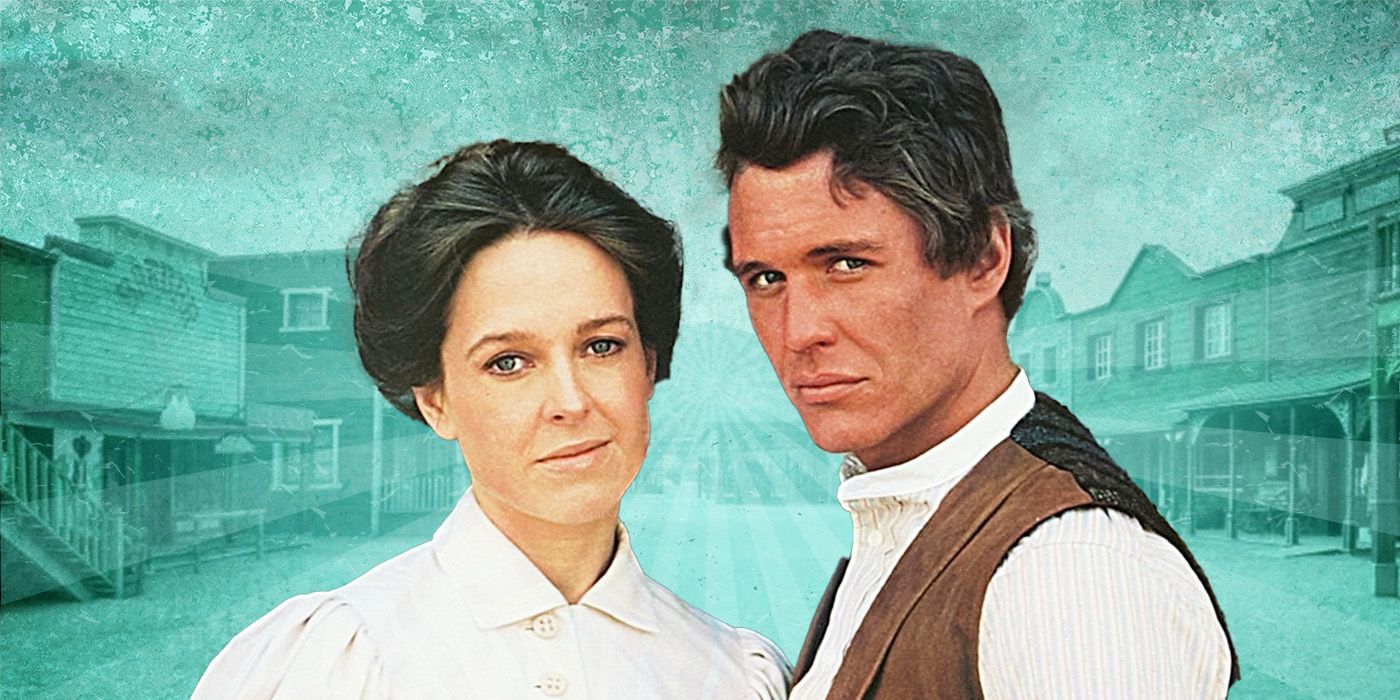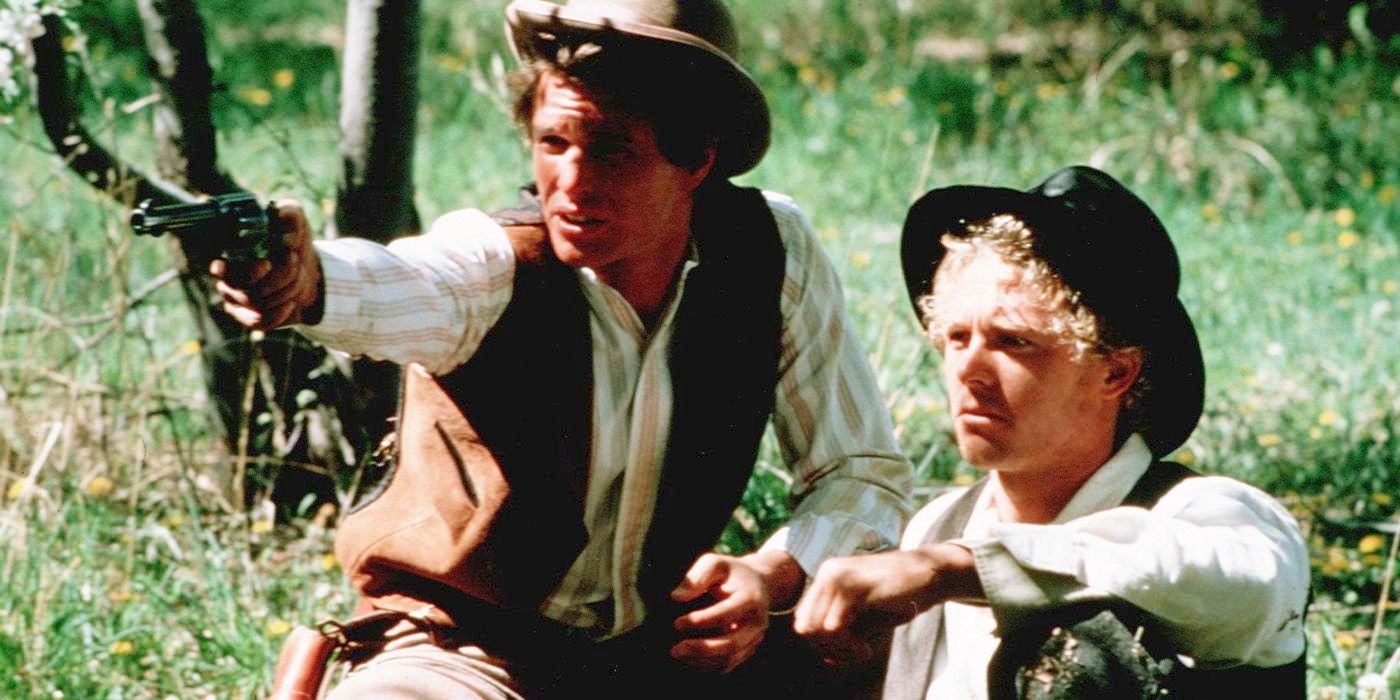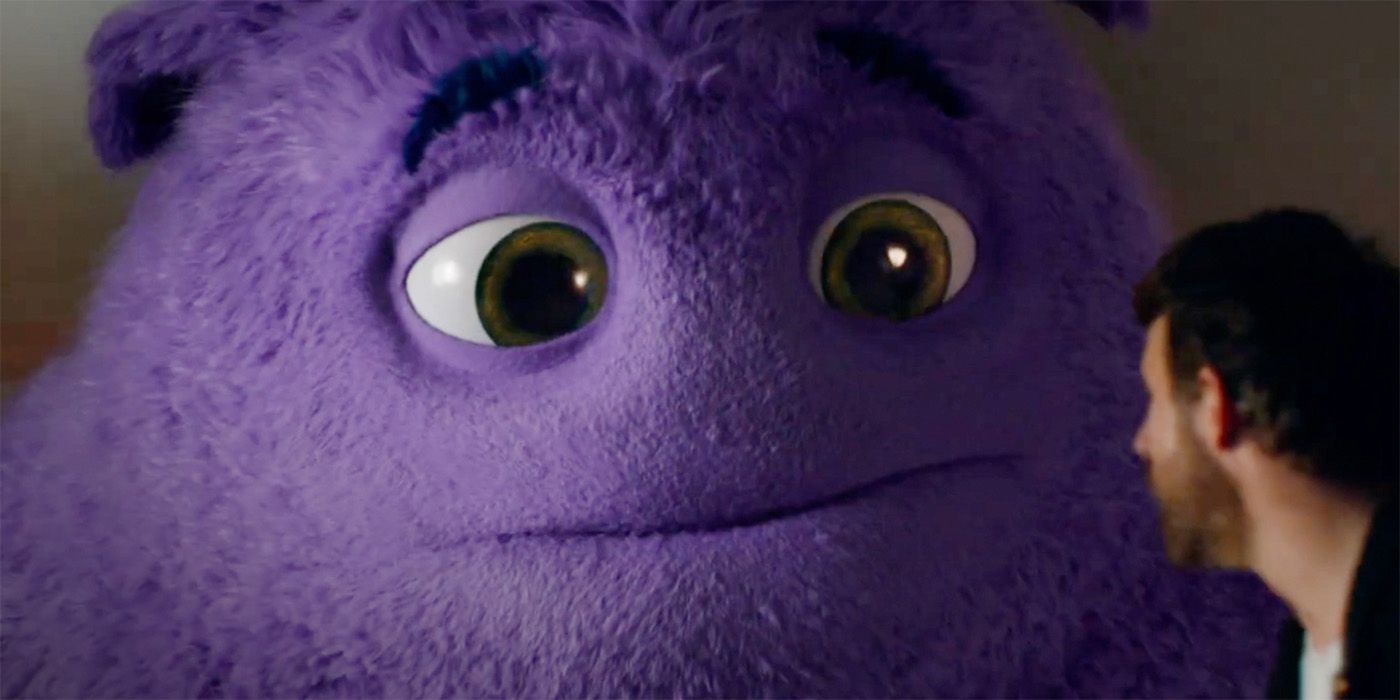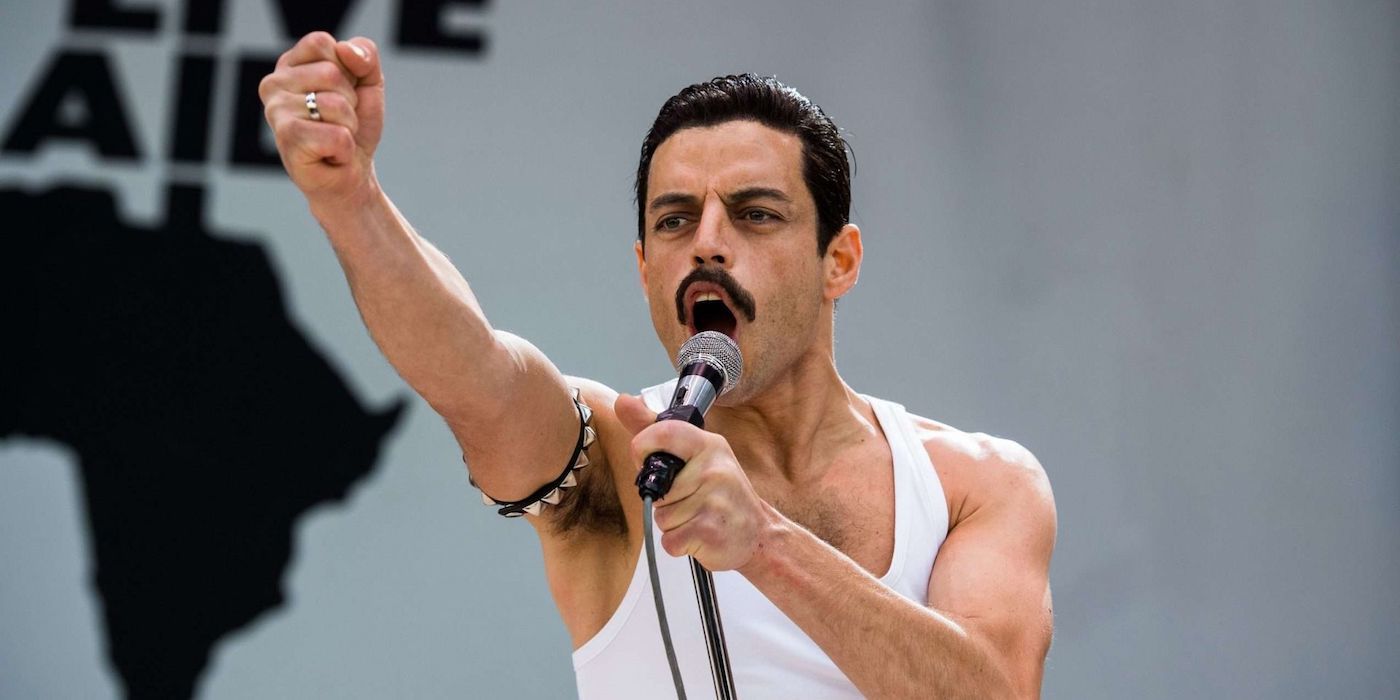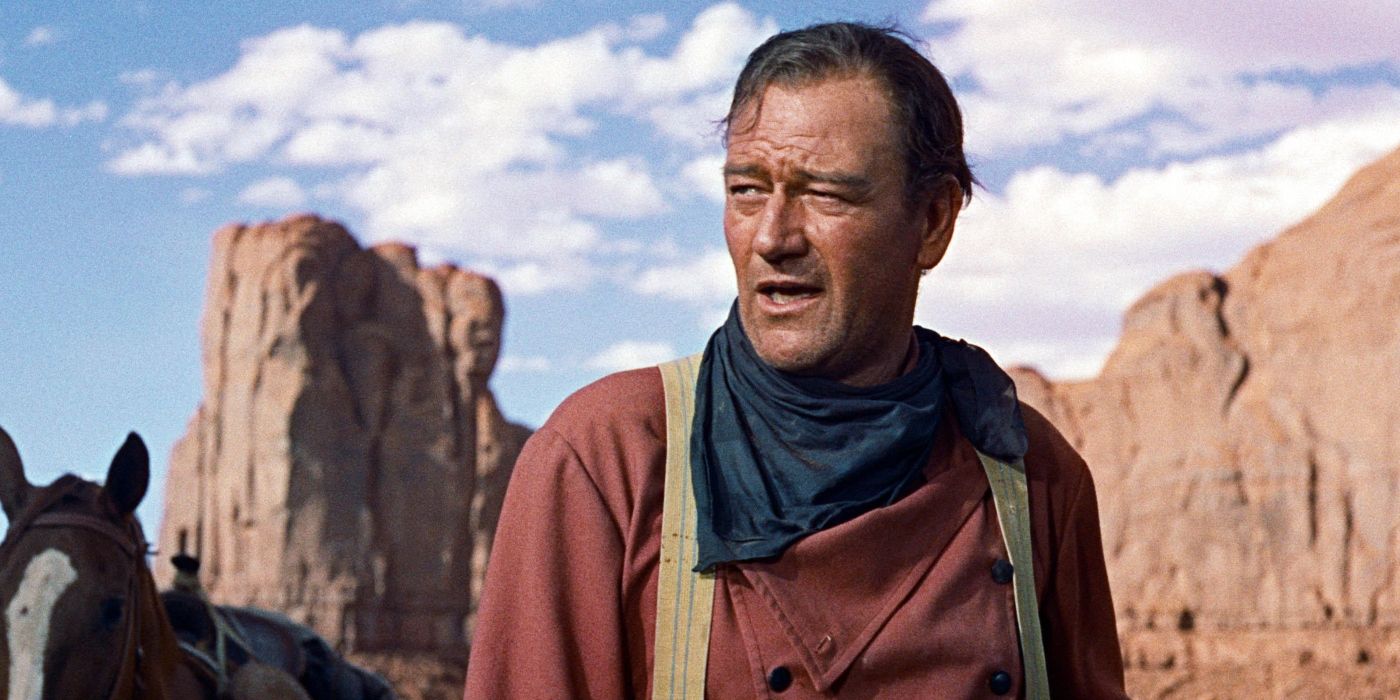The Big Picture
- Butch and Sundance: The Early Days popularized the term “prequel” in Hollywood, making it commonly used in the mainstream.
- The origin of the term “prequel” is still debated, with claims that J.R.R. Tolkien or Anthony Boucher may have coined it.
- Despite its attempt to recapture the success of the original, Butch and Sundance: The Early Days is seen as an unnecessary prequel that doesn’t compare to the iconic first film.
Did you know that Butch Cassidy and the Sundance Kid got a prequel? That’s right, the excellent Western starring Paul Newman and Robert Redford came back for more about a decade after the release of the original. Only this time, our heroes were played by Tom Berenger and William Katt respectively, rather than the stars who made the first film great. Butch and Sundance: The Early Days may not compare to the original, but one thing that this follow-up was known best for was popularizing the term “prequel,” a term that has a unique and complicated history.
Butch and Sundance: The Early Days
A prequel of sorts to Butch Cassidy and the Sundance Kid (1969) which chronicles the two outlaws’ lives in the years before the events portrayed in the 1969 movie.
- Release Date
- August 24, 1979
- Director
- Richard Lester
- Runtime
- 115 minutes
- Main Genre
- Western
- Writers
- Allan Burns , William Goldman
Where Did the Original Term “Prequel” Come From?
What might someone like J.R.R. Tolkien have to do with Butch and Sundance: The Early Days? Well, to tell you the truth, absolutely nothing. But, according to his son Christopher Tolkien, the long-time caretaker of the Tolkien Estate, his father was the one who coined the term initially. “The Silmarillion is at once the precursor of and the sequel to The Lord of the Rings,” Christopher Tolkien said of his father (via The Tolkien Estate). “A curious situation, for which he himself, when badgered for a definition of the relation between the two books, coined the highly uncharacteristic word ‘prequel’!” Given that J.R.R. Tolkien was known for indenting new words and even new languages to further his fantasy world of Middle-earth, it’s not surprising that the word may have come from him. But the reports about the term’s origins are admittedly conflicting.
In a Time Magazine article titled “Get Back: Prometheus, Before Watchmen, and the Complicated Art of the Prequel” by Graeme McMillan, writer Anthony Boucher is the one credited with the creation of the term. McMillan states that Boucher coined “prequel” in 1958 when reviewing the James Blish novel They Shall Have Stars for the long-running publication The Magazine of Fantasy & Science Fiction. Of course, The Silmarillion was first published in 1977 (and years after Tolkien’s death), decades after Boucher wrote the term in F&SF. But, in true Tolkien fashion, the author wrote the contents of the collected work across multiple decades, including while developing The Hobbit and The Lord of the Rings. Who’s to say that Tolkien didn’t invent the term beforehand, and it eventually flowed into Boucher’s subconscious?
To this day, the origin of the word “prequel” is something of a mystery. The Oxford English Dictionary asserts that the earliest known use of the term comes from the 1950s (specifically in Boucher’s F&SF articles), but whether it was J.R.R. Tolkien or Anthony Boucher who first used the term is unclear. Generally speaking, the fantasy and sci-fi genres kept the term carefully within their circles for decades until the late 1970s, when a little-known Western brandished itself as a prequel to one of the best and thrust the word into our collective consciousness. And that’s where Butch and Sundance come in.
‘Butch and Sundance: The Early Days’ Made the Term “Prequel” Commonplace
Directed by famed Superman III director Richard Lester, Butch and Sundance: The Early Days takes place years before the original and chronicles the initial meeting of a young Butch (Berenger) and Sundance (Katt), who previously went by Harry Longabaugh. (Yeah, we would’ve changed our name, too.) There are some genuine laughs in this picture and Berenger and Katt are surprisingly convincing as our favorite pair of outlaws, but the film is possibly known best for making the term “prequel” a household one. Before Butch and Sundance had their origin story told, “prequel” may have been a descriptor that was used occasionally and in specific genre circles, but The Early Days saw to it that the term itself stuck to the rest of Hollywood like glue.
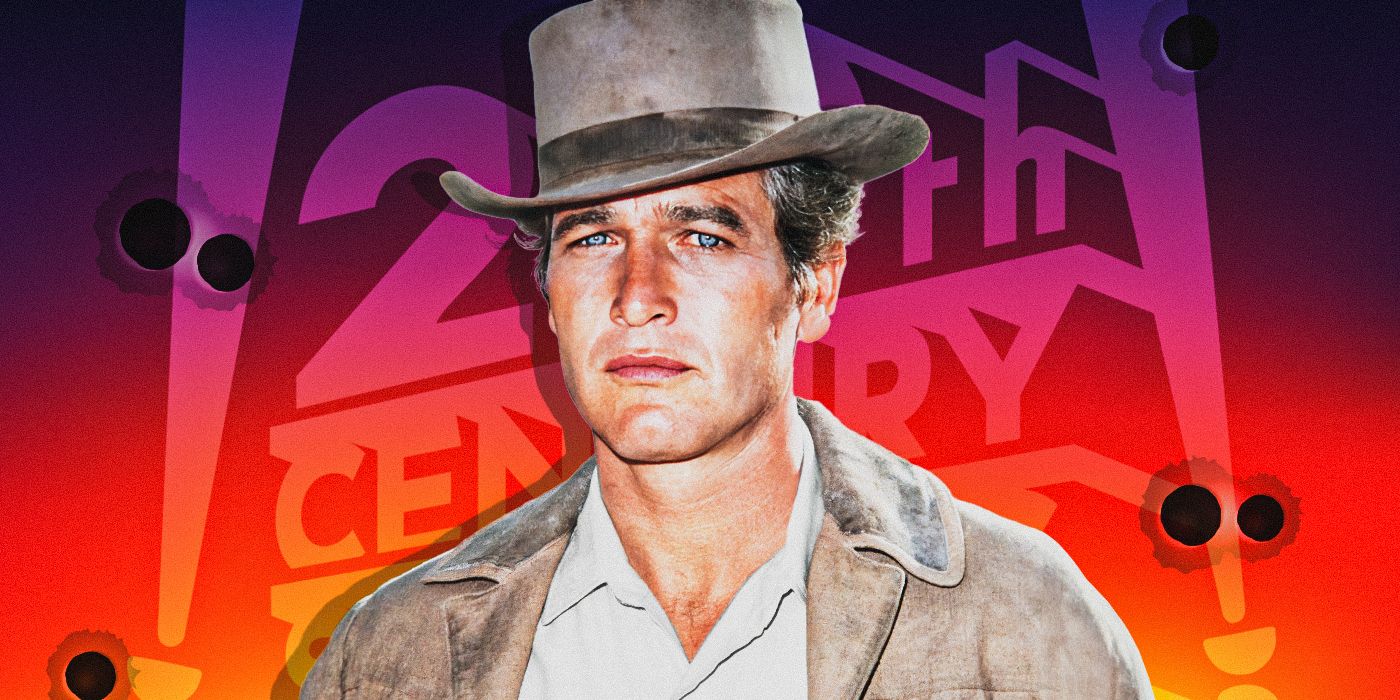
Believe It or Not, Paul Newman Wasn’t the Studio’s First Choice for Butch Cassidy
The legendary Hollywood duo Paul Newman and Robert Redford almost didn’t star in the iconic 1969 Western.
According to Salon, who profiled Richard Lester back in 1999, the term wasn’t a part of our cultural zeitgeist until the release of the Paul Newman/Robert Redford follow-up. “Lester may also have locked up the dubious distinction of inaugurating the term ‘prequel’ in 1979 when he directed Butch and Sundance: The Early Days,” claimed Steve Burgess. It’s important to note that nobody claims that Lester himself invented the term (as you can see, that’s still up for debate), but rather that he used it publicly in the mainstream in a way that, up until that point, had been uncommon.
Of course, there had been plenty of prequel films and stories told prior to Butch and Sundance: The Early Days, notably the British horror flick The Nightcomers, which takes place before the events of Henry James’ classic work, The Turn of the Screw (and in turn the 1961 film, The Innocents). But “prequel” itself didn’t become a popular term used in marketing or by general audiences until Lester began promoting his latest Western as such. Ever since, prequels have been increasingly more common, with George Lucas’ Star Wars prequels doing wonders for the term into the 21st century. But even by then, the term had already circulated among audiences everywhere.
‘Butch and Sundance: The Early Days’ Struggles To Stand Out
But how does Butch and Sundance: The Early Days hold up as a prequel to one of the greatest movies ever made? Well, it might not surprise you that The Early Days had a hard time outliving the original 1969 film. Paul Newman and Robert Redford had electric chemistry that wasn’t exactly replicable, and while Tom Berenger and William Katt do their best at playing these iconic Western characters, it’s hard not to wish that we had just gotten another film featuring the series’ original leads. That has generally been the consensus among both critics and audiences as well, who see the picture as nothing more than an ill-fated attempt at recapturing the impossible.
“If events of crucial interest had really happened to Butch and Sundance in the early days, either (a) they would have been included in the original movie, or (b) the present film would not have waited so easily for ten years to be made,” expressed Roger Ebert, who concluded rightly that The Early Days was an unnecessary film. “Tom Berenger and William Katt acquit themselves admirably,” wrote Variety about the prequel, “but they simply can’t compete with the ghosts of two superstars.” Of course, Butch and Sundance: The Early Days isn’t all bad. After all, it was nominated for an Academy Award for costume design, but the film certainly suffers from being, as Ebert coined it, an “unnecessary prequel.”
Prequels can be hard stories to tell, especially when they aren’t set up beforehand. There’s nothing in the original Butch Cassidy and the Sundance Kid that screams, “we have more stories to tell.” There’s no doubt that there’s a lot of history between the two leads, and we’d certainly love more Newman and Redford on-screen interactions (and their later film The Sting fit the bill perfectly), but that’s not what we get here. Not only are Newman and Redford excluded from this tale, but the lackluster nature of The Early Days itself — which attempts to try to ride off the coattails of the original film’s success (albeit a decade too late) — doesn’t make this a must-watch Western adventure. But hey, at least the word prequel was thrust into the mainstream because of it!
Butch and Sundance: The Early Days is available to watch on Starz in the U.S.
Watch on Starz

